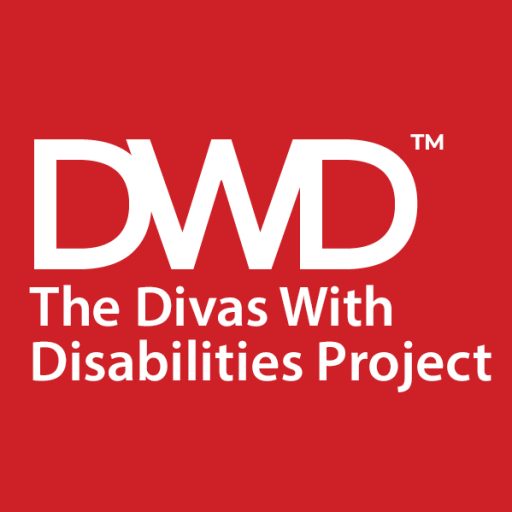Dating_While_Disabled
Live & Love Beyond Ability
Welcome to the Dating_While_Disabled Column for PrideAbility!
Dating_While_Disabled (D_W_D) is a personal venture of love created in 2021 by Divas’ very own human rights and wellness program manager, Samiyah Muhammad. As a disabled Black lesbian, Samiyah founded Dating_While_Disabled due to an undeniable need for more valid representation of various relational dynamics for LGBTQIA+, especially Trans disabled Black and Brown communities. Now she is presenting her knowledgeable insights through a collaborative partnership and by leading the charge on behalf of Divas With Disabilities for PrideAbility.
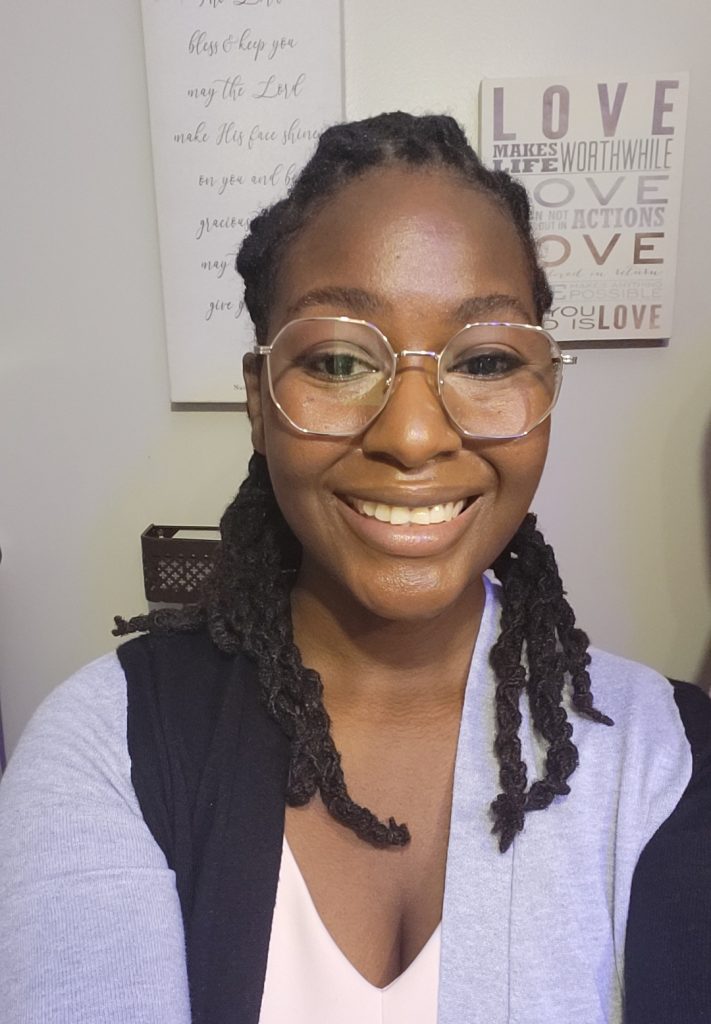
This is a safe, affirming, and inclusive space that gets real about versatile issues, trends, and all things cultured, disabled, and LGBTQIA+. We want to elevate our Divas as we continue spreading positive awareness and share stories from our community, we want to thank you all for your amazing contributions even in spaces that sometimes cannot contain the rare and alluring nature you bring to the room with your presence. Dating_While_Disabled is here to highlight love, sex, relationships, and their beautiful entanglements with disability.
Dating_While_Disabled is here to highlight the importance of understanding and innerstanding the social nuances that impact our relational dynamics. Focusing on how disability, race, gender identity, and sexual orientation intimately mesh with familial, platonic, professional, and societal norms will aid in reminding others that disabled individuals deserve love and have the right to happy, healthy, and full lives filled with love, passion, and the pursuit of happiness. Lastly, Dating_While_Disabled’s mission is to shine a light on human rights issues impacting reproductive justice, disability justice, racial equity, and LGBTQIA+ justice.
Join us at Dating_While_Disabled as we enlighten the community on common misconceptions of disability, race, culture, sex, gender identity, sexual orientation, relationships, and various intersectional facets of human connection!
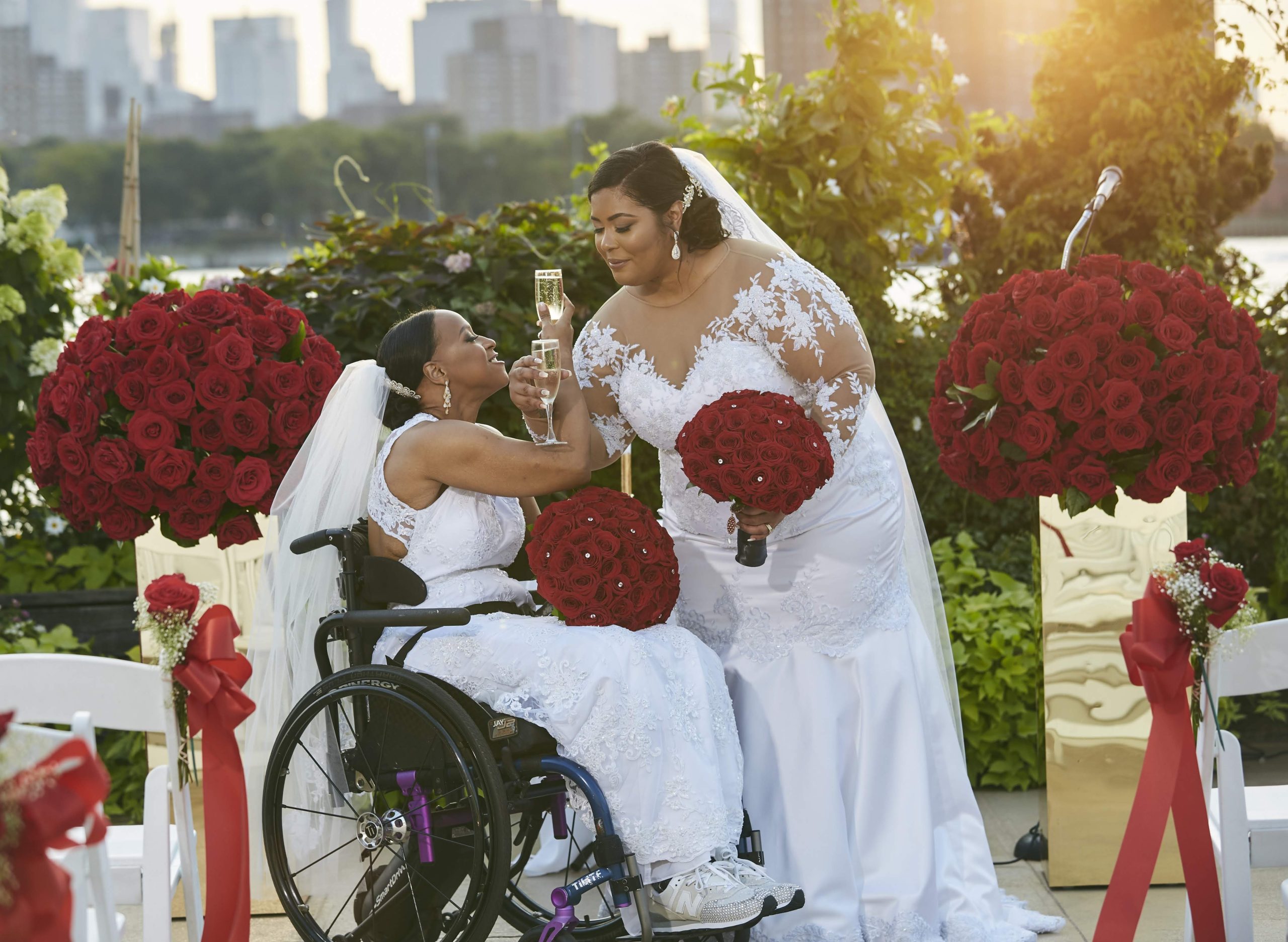
See story below.
“Disabled individuals deserve love and have the right to happy, healthy, and full lives filled with love, passion, and the pursuit of happiness.“
Baby Queers: 1st Loves to Life Partners
A love story that has lasted through time, culture, and health problems. Their tale, from first love to life partners, inspires both young and old.
Interviewed and Written by Samiyah Muhammad
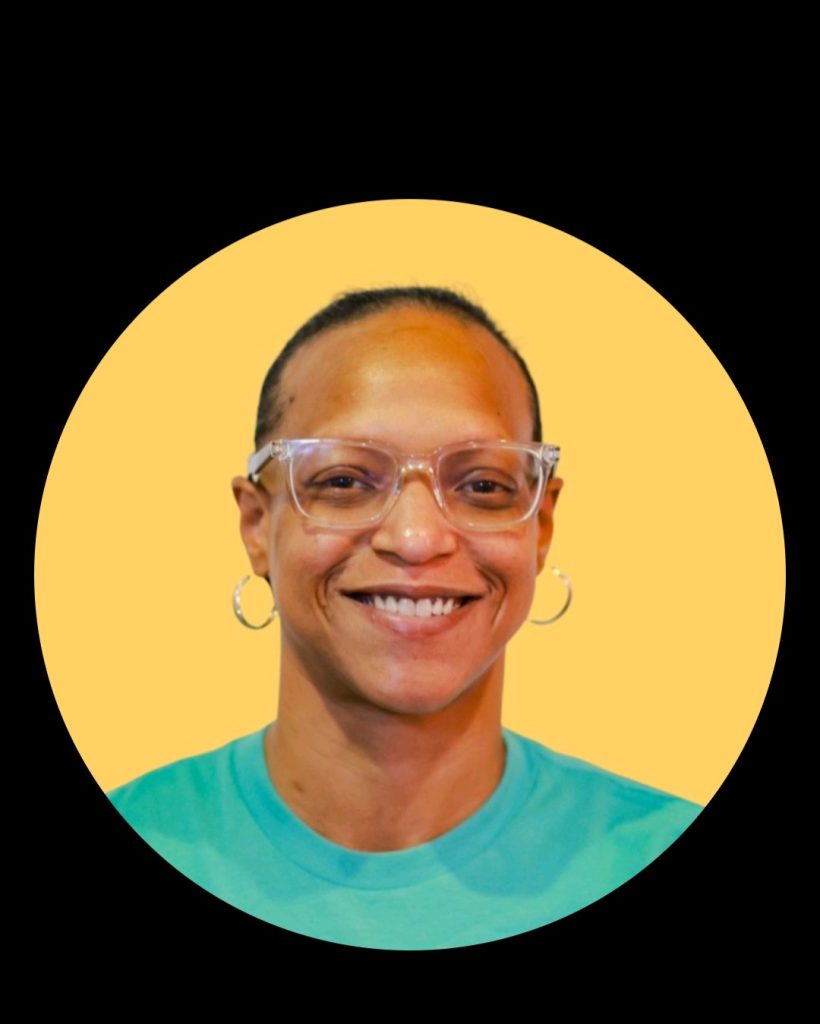
With a movie-worthy love story, Gesy Duran and her wife being devoted to each other for over 20 years is a testament to lasting relationships for Interabled queer couples. Overcoming cultural barriers and societal opposition to their same-sex relationship, the two first met in the school hallways during middle school and have been inseparable ever since. They’ve navigated the challenges of youth, homophobia, ableism, and sexism. As the two baby queers navigated internal questions and external barriers, they understood for certain that their feelings for each other were pure.
Their love remained strong through Gesy’s health struggles, highlighting the existence of lasting interabled queer relationships. From hiding their love by only holding hands on the subway to pretending to be siblings when Gesy was hospitalized, the Durans have faced difficult life moments boldly. Over time, they would overcome two transitional health struggles and support each other through life’s triumphs and challenges, including Gesy’s life-altering decision in college to remove her pancreas. Gesy has experienced a once-in-a-lifetime love, as many would refer to it. In her own words – “ She was my first girlfriend, and I was her first…we were trying to figure out if we were just close, but I had a best friend, and I didn’t want to kiss my best friend!” Gesy recalls with a chuckle.
Ableism + Queer Community
For our hetero-allies, it is a running joke for queer women to have short-lived, yet passionately connected relationships. However, Black and Brown LGBTQIA+ community members are more likely to have a chronic illness or disability, according to various statistical data and research articles, and studies alike. Ableism is a known issue within the queer and trans community, and compounding forms of discrimination heighten it within Black and Brown communities. As per (Cope, 2023) “…There is considerable overlap between the disabled and LGBT+ communities and, in fact, according to a survey by the HRC Foundation, LGBTQ+ people are more likely to be disabled than non-LGBTQ+ people. In the United States, for example, 36% of LGBTQ+ people in general and 56% of transgender people are disabled… the LGBT+ community at large, positing that repeated experiences of discrimination, self-stigma, and the need to hide one’s identity leads to psychological distress in minority groups…” Gesy and her partner had a new lease on life after Gesy’s debilitating battle with chronic pain, paralysis, and depression. To celebrate, Gesy busted her tail in physical therapy to walk down the aisle to her beautiful wife at their wedding.
Disabled Experience With IVF: Gesy’s Road to Motherhood
As they began their new life, Gesy declared it was her “YES!” Year” by accepting the desire to become a mom.
Dating_While_Disabled and Pride Ability appreciate the Duran’s bravery in sharing their IVF experience as a lesbian, interabled family of color. For those unaware, IVF is one of the most beautiful processes for same-sex couples to become parents together biologically through surrogates and sperm donors. “IVF allows same-sex partners to share in the process of pregnancy through an approach called co-IVF or reciprocal IVF.”(Bill, 2024).
The medical aspects of Gesy’s pregnancy were challenging for her and her partner, due to medical misconceptions, ableism, racism, and discrimination. Gesy’s identity as a Masc-presenting lesbian also made things more intricate. Questioning her ability to carry to full-term and raise a child while paraplegic, to absurd comments about her marriage and lesbianism, Gesy and her partner soldiered through. Miraculously, they found helpful resources such as the RMA Clinic, which guided them along the way. This particular process was for Gesy to carry her wife’s egg in her womb.
Regardless of the obstacles endured, including early onset menopause, navigating the loss of a miscarriage to the possibility of losing her baby on the second attempt, Gesy succeeded in her efforts to become a mother. One of the most challenging memories recounted in her own words, “At the heartbeat check, we didn’t hear anything…there was nothing….we were devastated. The doctor told us to go enjoy ourselves and come back on Monday, we were confused! Wondering…Doc do you realize what you just told us!? We went to my cousin’s wedding, we danced, we smiled, we celebrated. Then on Monday, there was a heartbeat! Today, we have a bold, sassy, music-loving three-year-old…!” Gesy and her family are one story of millions.
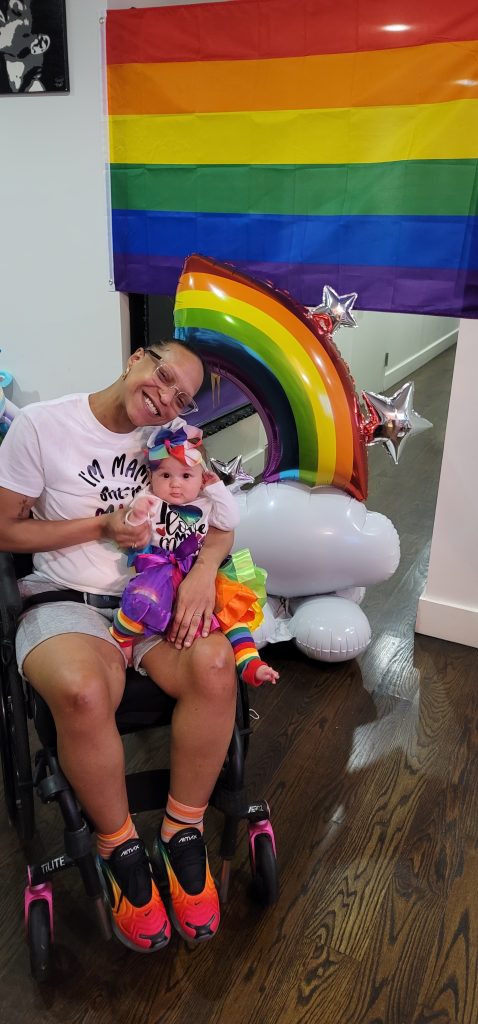
With high rates of maternal mortality, it is a known fact that most mothers of color endure compounding forms of discrimination based on intersectionality. Those stats can be tripled for Black and Brown disabled LGBTQIA+.
According to (Justice, 2025), “Not only do many Black women face racial discrimination while seeking healthcare during their pregnancies; many providers also lack knowledge and confidence in managing a pregnancy that may be affected by a physical, intellectual, or emotional mental disability” (para. 4). This underscores the urgent need for systemic changes to address both racial bias and the lack of disability competence among providers. Recognizing that Black disabled pregnant women deserve informed providers and equitable health outcomes is just the first step toward providing better care.”
Click the links to learn more about Gesy’s background and her business, Wheel Eating.
Resources
Advances in Clinical Neuroscience and Rehabilitation. (2025, May 12). Physical disability, a mark of Cain? The impact of disability stigma on access to rehabilitation services | ACNR. ACNR. https://acnr.co.uk/articles/disability-stigma/
Bill. (2024, May 8). LGBT Fertility Options – IVF for gay and Lesbian couples | RMA Network. RMA Network – Fertility Clinic. https://rmanetwork.com/family-building-options/lgbtq-fertility-options/#:~:text=Co%2DIVF%20for%20Lesbian%20Couples,and%20who%20carries%20the%20pregnancy.
Cope, A. (2023, October 3). The double Discrimination of disabled LGBT+ People | IE Insights. IE Insights. https://www.ie.edu/insights/articles/the-double-discrimination-of-disabled-lgbt-people/
GenerateHealth. (2024, July 24). Disability justice and Black maternal health. https://generatehealthstl.org/disability-justice-and-black-maternal-health/#:~:text=In%20the%2United%20States%2C%20Black,or%20accommodating%20to%20their%20disability.
Justice, C. F. R. a. D. (2025, January 21). Breaking the Silence: Maternal Health and Black Disabled Women. Medium. https://nlawcrdj.medium.com/breaking-the-silence-maternal-health-and-black-disabled-women-7567ec4df2aa

